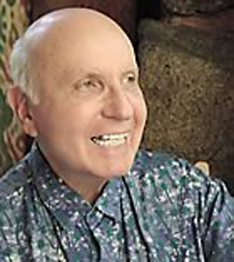Keeping a JournalPowerful Patient, 2008 Week 21Joyce Graff, host, on webtalkradio.net Beginning May 19, 2008
When we are ill or under stress, our thoughts become jumbled. In a situation where we might have good advice for a friend, we see no way out for ourselves. Joyce Graff speaks with Dr. Sheppard Kominars about his book on journal writing, Write for Life.
About Our Guests
Sheppard Kominars, Ph.D., is a professor of the History of Ideas and educational consultant. He is known on the internet as the Journal Doctor, www.journaldoctor.com
Dr. Kominars shares his personal story of medical issues, chronic pain, drug and alcohol addiction, and how he has worked through those ills in part through journal writing. He has written a book, Write for Life: Healing Body, Mind, and Spirit through Journal Writing, and gives seminars on journal writing.
About Journal Writing
Keeping a journal is a good way to “meet yourself” as you stretch in all directions. You can alleviate your stress by releasing your emotions in a safe place. You can express anything and everything on your mind. Not only is a journal a good place for you to complain and whine all you need to, you can also get in touch with your intuition and explore ways to handle problems that baffle you. Getting rid of your pent-up feelings is good for you!
A journal is a resource for healing body, mind, and spirit in a way that supports every activity that engages you, and every predicament that you face.
A journal is a private affair – unlike “blogging” which is a public exercise. If you are writing “for” something – for publication, for your child or friend – that’s not journaling. Journaling as defined by Dr. Kominars is an exercise for healing your body, mind, and spirit – just begin by moving your hand, and put out all those thoughts that are running around in your head. Use this time to get your thoughts out there – outside your head, outside your body – and put them out where you can look at them more objectively, as if they were someone else’s thoughts.
|
